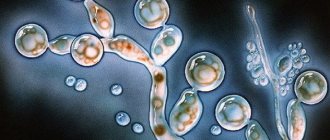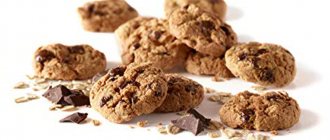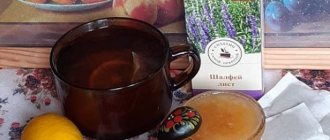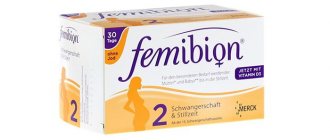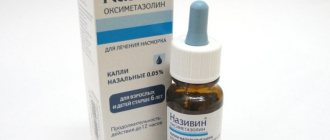Chemical composition of the plant
The main list of Helba’s beneficial substances is concentrated in ripened seeds.
Although the stems and leaves of the plant are also used in cooking and medicine. The unique composition of the plant.
| Type of elements | Decoding | What is the benefit |
| Vitamins | A | Retinol. Helps strengthen the immune system and maintains clear vision. |
| IN 1 | Thiamine. Improves the quality of metabolic processes, which affects the functioning of the entire body. | |
| AT 2 | Riboflavin. Participates in redox reactions. Improves the general condition of the body. | |
| AT 6 | Pyridoxine. Normalizes amino acid metabolism. Promotes proper development of the fetus. | |
| AT 9 | Folates. Helps strengthen the immune system and prevents the development of infectious diseases. | |
| WITH | Ascorbic acid. Participates in the fight against infection, strengthens blood vessels, cartilage tissue and immunity. | |
| D | Calciferol. Maintains the phosphorus-calcium balance necessary for normal bone formation. | |
| P | Rutin. Promotes the absorption of vitamin C and is involved in strengthening blood vessels. | |
| PP | A nicotinic acid. Participates in metabolism and the formation of enzymes. | |
| Minerals | Iron | Prevents the development of anemia and normalizes the supply of organs and tissues with oxygen and nutrients. |
| Potassium | The element is necessary to normalize the water-salt balance in the body. | |
| Calcium | Together with vitamin D, it makes bones and teeth strong. | |
| Magnesium | Normalizes metabolic processes and also improves the condition of blood vessels and muscle tissue. | |
| Sodium | Maintains water-salt balance and normalizes the nervous system. | |
| Selenium | Prevents the development of cancer cells, helps reduce fat cells and fights inflammatory processes. | |
| Phosphorus | Normalizes the process of all chemical reactions in the body, maintains healthy bone tissue, and is necessary for the normal functioning of the brain. | |
| Zinc | Improves the condition of the nervous and reproductive systems. Activates processes in tissue cells. | |
| Tannins | Eliminate dysbacteriosis and inflammatory processes, destroy bacteria and viruses. | |
| Saturated fatty acids | They supply the body with energy and participate in the production of hormones. | |
| Essential oils | They balance the mental state, accelerate the removal of toxins and normalize the water-salt balance. Improves the condition of the skin and hair. | |
| Coumarin | It has a calming effect, relieves spasms and destroys pathogens (viruses, bacteria, fungi). | |
| Nitrogenous substances | Normalizes all metabolic processes in the body. | |
| Flavonoids | They relieve spasms, destroy foci of inflammation, and prevent the development of cancer cells. | |
| Antioxidants | They destroy malignant cells and strengthen the cardiovascular system. | |
| Phytoestrogens | Normalize hormonal levels in the body. | |
| Steroidal saponins | Promote the production of steroid hormones and normalize the condition of muscle tissue. | |
| Enzymes | Activate all metabolic processes in the body. | |
| Amino acids | Promote the absorption of nutrients and normalize the formation of new cells. | |
| Alkaloids | They prevent cancer pathologies from developing, remove toxins and activate blood circulation. | |
| Polysaccharides | They promote weight loss and also play an important role in the formation of new cells in the body. | |
| Alimentary fiber | They cleanse toxins and cholesterol, normalize intestinal function. | |
| Resins | Improve wound healing and fight infection. | |
Considering the chemical composition of Helba, before using folk recipes based on it, it is necessary to take into account the indications and contraindications for use. If necessary, it is recommended to consult a therapist.
Helba is a universal plant that has a number of beneficial properties and treats more than one disease. This herb is known in different ways around the world, with names such as fenugreek, shamballa, helba, camel grass, Greek hay and cocked hat. In addition, helba is popular not only as a medicinal or cosmetic product, but also as a spice.
In countries such as Egypt and Ethiopia, helba is used to make bread called "khulba" or "abish". In Turkey, tea is prepared from the herb, which relieves stomach cramps caused by food that is unusual for the body. Fenugreek is often used as an additive to vegetable dishes, as it helps them to be better absorbed. Fenugreek is included in hops-suneli and curry.
The ancient Greek healer Hippocrates highly valued fenugreek as a unique healing agent. The healing properties of helba were also known in Ancient Egypt; it was often used for difficult childbirth and problems with breastfeeding. In Arab countries, it is customary to eat roasted helba seeds to round out the chest and hips. Modern scientists confirm that fenugreek has amazing properties.
Useful fenugreek
Fenugreek is a plant of the legume family that grows in southern European countries, India, Argentina, and Morocco. Its homeland is Syria and Lebanon. This herb has many names: helba, shambhala, fenugreek, etc. Because of its pleasant aroma and bitter taste, it is used as a seasoning in cooking.
Fenugreek grows in countries with hot climates
Of the many varieties of fenugreek, two types - hay and blue - are used for medicinal purposes. The fruits of the plant are dried and ground to a powder. After all, as studies have shown, helba in this form is much more effective than fresh. Decoctions, teas, tinctures, as well as compresses and ointments are prepared from it.
Biochemical composition
Fenugreek fruit is a source of protein and saturated fat. They contain almost all the amino acids, vitamins and minerals needed by the human body:
- lecithin;
- tannin;
- routine;
- vitamins A, C, PP, group B;
- iron;
- potassium;
- sodium;
- magnesium;
- manganese;
- selenium;
- zinc;
- phosphorus.
Helba seeds contain essential oil, sugar, and fiber.
Interestingly, the herb also contains the phytoestrogen diosgenin, a plant analogue of the female sex hormone estrogen.
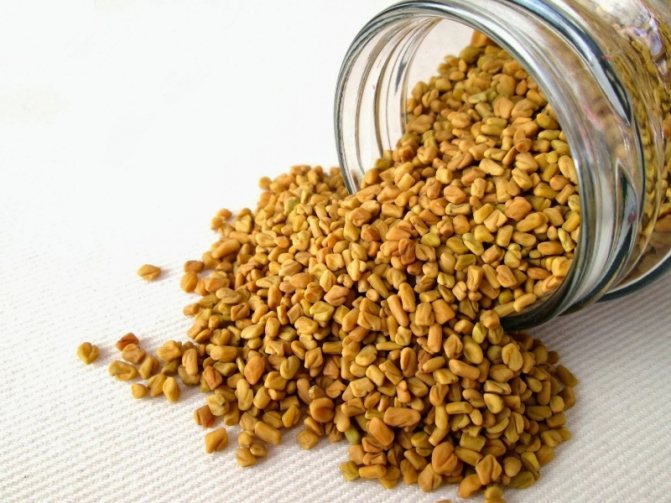
Helba seeds contain essential oil, sugar, fiber
Unique healing properties
Due to its rich composition, fenugreek is successfully used in folk medicine to treat a number of diseases. It has anti -inflammatory, immunomodulatory and antidiabetic effects, and is also a natural antioxidant.
- Helba has a beneficial effect on the functioning of the digestive system: it normalizes stool, helps eliminate chronic inflammatory processes in the large intestine (ulcerative colitis).
- Fenugreek has the ability to reduce cholesterol in the blood, thereby preventing the development of cardiovascular diseases (stroke, atherosclerosis).
- The seeds of the plant are used for anti-inflammatory purposes in infectious diseases of the respiratory system, kidneys, oral cavity, acute respiratory infections, and influenza. This herbal antiseptic is also used externally for various skin lesions (purulent wounds, etc.), and is used in the production of bactericidal patches.
- The medicinal herb helps remove toxins from the body.
- Eating helba fruits slows down the absorption of sugar in the digestive tract - due to this, the level of glucose in the blood decreases. The plant is a wonderful remedy for the prevention of such a serious disease as diabetes.
- Fenugreek has a general strengthening effect, increases the body's endurance, and due to its protein content helps build muscle mass when playing sports.
- The herb has proven itself well as a remedy for improving the condition of skin, hair and nails.
- Fenugreek improves the nervous system, having a sedative effect.
- Helba also helps with a number of women’s health problems: painful menstruation, symptoms of menopause, polycystic disease. The herb even treats infertility associated with a lack of estrogen in women.
Photo gallery: problems that fenugreek helps solve

The unique composition of fenugreek has a positive effect on the condition of the skin, hair and nails

Helba helps fight upper respiratory tract infections
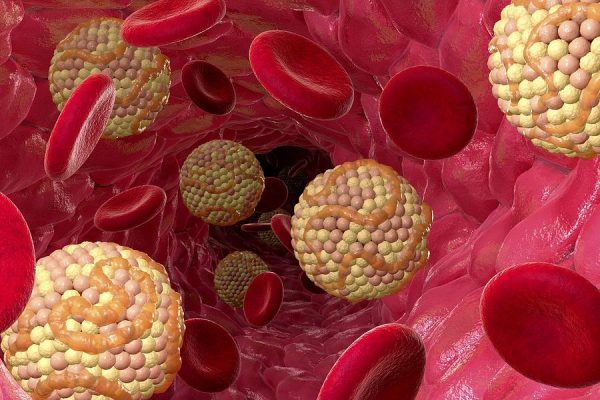
Fenugreek may lower blood cholesterol levels

Fenugreek relieves women during painful menstruation
Video: fenugreek - Russian spice
Useful properties of the herb
Helba is a herb (the benefits of the plant are based on its composition) that helps restore balance inside and outside the body, with the help of medicinal decoctions and ointments.
Medicinal properties of Helba:
- Supports and strengthens the immune system.
- Prevents infection from colonizing and multiplying in the body.
- Improves lung function, helps cleanse excess mucus and pathogens.
- Normalizes body temperature.
- Restores the functioning of the digestive organs. It has a beneficial effect on the condition of mucous membranes, reduces high acidity, and improves the production of necessary enzymes.
- Fights inflammatory reactions and accelerates the healing processes of wounds and abrasions. On the surface of the skin (eczema, acne) and in internal organs (ulcers, inflammation of the appendages, pancreatitis).
- Regulates and improves metabolic processes in the body.
- Cleanses organs and tissues of waste and toxins, speeds up their elimination. This reduces the load on the liver.
- Promotes weight loss by destroying excess fat tissue and accelerating metabolic reactions. It also reduces increased appetite.
- Regulates the functioning of the intestinal tract, feces leave the body in a timely manner during constipation. With diarrhea, stool becomes consolidated. Reduces flatulence and fights bloating.
- Normalizes psychological balance and functioning of the nervous system.
- Restores the normal composition of the blood (replenishes it with iron, removes excess glucose, eliminates cholesterol, toxins). Normalizes the process of blood clotting.
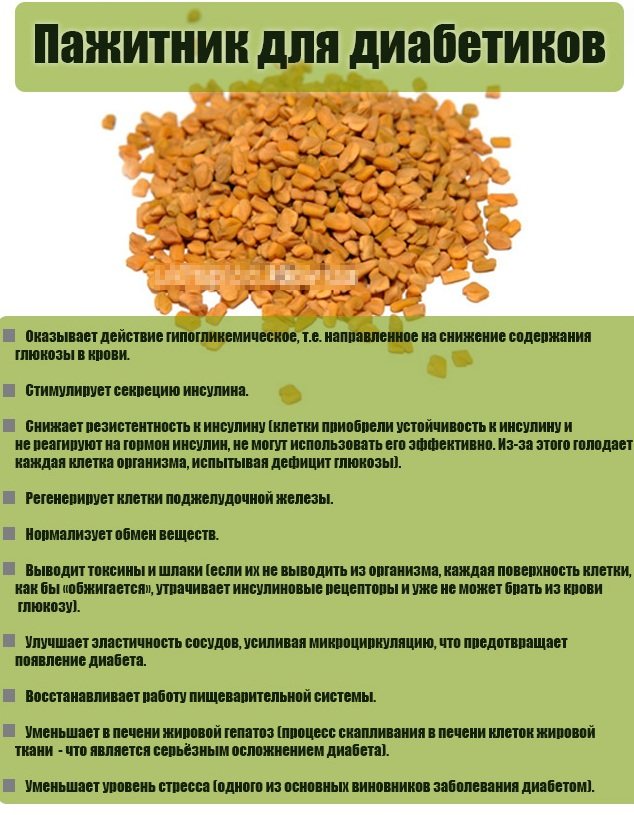
Helba herb is useful for diabetes - Strengthens the walls of blood vessels and gives them elasticity.
- Normalizes blood pressure and heart function.
- Improves the functioning of the organs of the reproductive system (in women it increases the likelihood of conception, in men potency is restored).
- Replenishes the body with energy and has an invigorating effect.
- In nursing women, it improves the composition of breast milk and its quantity.
- Allows you to quickly saturate the body with moisture in hot climates.
- Removes excess fluid from tissues, reduces swelling. This improves kidney function.
- Prevents cancer cells from developing.
- Eliminates spasms that provoke headaches and menstrual pain.
- Contains a large supply of vitamins and minerals. Quickly replenishes the body with the necessary reserves.
- Promotes the restoration of bone, cartilage and muscle tissue. Improves the process of cell renewal. Restores the heart muscle.
- Destroys helminths, lamblia and promotes their further removal from the body. Protects the body from the action of parasite toxins.
- Restores and improves brain functioning, which has a beneficial effect on memory.
- Promotes rapid recovery of the body after injuries, exhaustion and operations.
- Normalizes hormonal balance in the body of men and women.
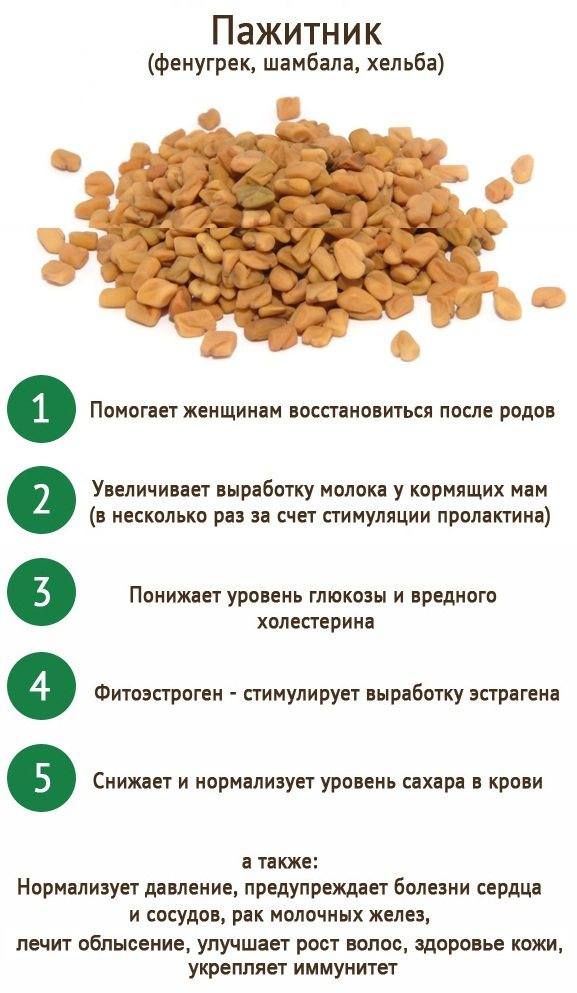
The listed beneficial properties are fully revealed when decoctions and ointments are prepared correctly, as well as when all rules of use are observed.
It is recommended to give tea from Helba beans to children after 3 years of age. In this case, it is necessary to monitor the body’s reaction. If allergies, vomiting, or changes in stool occur, the drink should be discontinued. After a year, you can try introducing tea into your diet again.
The drink will strengthen the immune system, accelerate the recovery process from colds, and promote the normal formation of the child’s skeleton. Before drinking tea, it is recommended to consult a pediatrician about the correct doses.
“Shambhala”, “camel grass”, “cocked hat” - this is how fenugreek is called in different countries of the world. In Europe it has long been known as “Greek hay”; in Arab countries it was called “helba” - this name is also popular among Russians. Over the centuries, the plant has “settled” across all continents.
Hippocrates highly valued the healing power of fenugreek; The Prophet Muhammad advised to be treated with helba, and authoritative Arab doctors echoed him. But only in the 18th century did a scientific description of the plant come from the pen of Carl Linnaeus.
Fenugreek is from the legume family, its fruits taste like peas, only with a bitter taste. The leaves are oblong, the flowers are small; fruits and seeds emit a specific smell of coumarin and are part of Indian spices. Fenugreek seeds have unique medicinal properties - they contain a lot of useful substances. Here are some:
- beta-carotene, ascorbic acid;
- vitamins of groups A, C, B;
- oleic, linoleic, linolenic acids;
- calcium, magnesium, iron, zinc, manganese, etc.
Fenugreek seeds contain the healing power of the plant.
The seeds are consumed whole, ground into powder and sprouted, and the sprouts contain even more vitamins and microelements than the seeds. The miracle herb helba is used in the treatment of dozens of diseases - from polycystic ovary syndrome to tuberculosis. Used in cooking and cosmetology.
Dosage forms
Depending on the goals and methods of treatment, there are medications and home remedies with fenugreek. Apply:
- pharmacological preparations with plant extract;
- infusions and decoctions;
- compresses with dried seeds.
Due to the presence of alkaloids, which have an antimicrobial effect, the plant is also used in the manufacture of plasters.
Fenugreek (Shambhala, Helba) for a nursing mother
Synonyms: fenugreek for breasts, grass and fenugreek seeds during lactation, beneficial properties of helba for women
***
Fenugreek is a spicy herb that is used in cooking (it has the smell of mushrooms or nuts, depending on who you choose:), but it is also known among women as a means of increasing lactation and improving obstetric care.
.
This legume family plant has more than 100 species and many names - it is also known as shamballa, helba, fenugreek, camel grass, mushroom grass, goat's clover, Greek hay
etc. Most often we use powder from ground seeds or leaves of fenugreek. In Arabic it is called al-hulbah, which comes from an ancient root meaning “milk.”
Fenugreek seeds contain a lot of protein, and among other things, contain saturated fats (up to 17%), amino acids lysine and L-tryptophan, a lot of selenium and magnesium. In the pharmaceutical industry, its mucus is used to make a product for bactericidal patches, and the seeds are used to produce an anti-sclerotic drug and other medicines.
Interestingly, in the USA, a medicine for women from fenugreek was patented back in 1876 - under the name “Lydia Pinkham’s Elixir for Melancholy and Female Ailments” a remedy was sold that relieved menstrual discomfort.
As modern research has shown, the seeds of the plant contain from 0.1 to 0.9% of the phytoestrogen “diosgenin”
- a substance similar to the female sex hormone estrogen. It plays an important role in the treatment of polycystic ovarian diseases, mastopathy, thyroid cysts, and secondary infertility. Fenugreek relieves pain and speeds up labor (accordingly, pregnancy and vaginal bleeding are contraindications for its use), calms the nervous system and enhances lactation (very popular in this capacity in India, where it is known as metha).
The effect of fenugreek on milk production has been little studied. Thomas Hale's handbook describes two studies on breastfeeding women. The first involved 10 women who gave birth to babies at an average of 29 weeks of age. They took 3 capsules of fenugreek (manufactured by Nature's Way) 3 times a day for one week. Milk production doubled on average. The second study involved 26 women who gave birth before 31 weeks of gestation. Part of the group took 3 tablets 3 times a day for 21 days. The other part of the group took a placebo. Analysis of the data showed no statistically significant difference in milk production between women taking fenugreek and placebo. No side effects were found in any of the studies, so fenugreek (fenugreek) is considered compatible with breastfeeding, although it may be ineffective.
Fenugreek tea recipe
: rinse the seeds in cold water (you can even soak them for a couple of hours), pour two teaspoons of seeds with a glass of water and cook for 5-7 minutes. Drink several times a day.
When taken for a long time or in excess of the dose, fenugreek can cause side effects - bloating, gas formation, diarrhea, possibly hypoglycemia, allergic reactions, the smell of maple syrup from the sweat and urine of a nursing woman and her child. This is not dangerous, but if you go to see a doctor at this moment, be sure to warn him, because otherwise, based on this smell, the doctor may suspect a serious endocrine disease.
By the way, fenugreek is part of various complex seasonings such as hops-suneli, curry, adjika, and even sometimes in maple syrup or green cheese - so don’t be surprised if suddenly after rice and curry you suddenly feel a rush of milk :) I had this happen with mint - read about this interesting experience...
Remember also that in most cases it is not necessary to stimulate lactation with additional means - frequent and effective emptying of the breast is sufficient, primarily through frequent feedings at the request of the child. Read articles about this in the “Breastfeeding Mothers” section.
More on the topic: Do you need to save milk to increase lactation? What drinks increase lactation?
Return to menu for breastfeeding
Fenugreek for breastfeeding
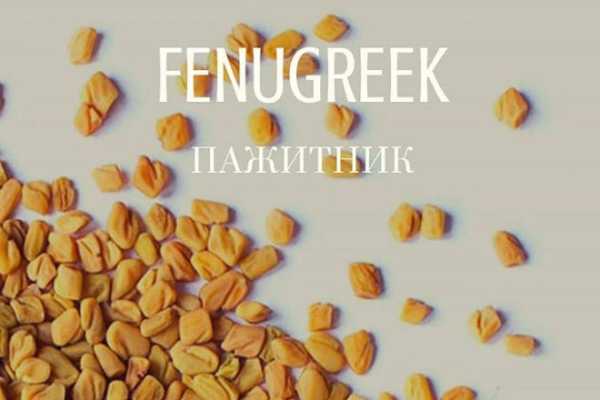
In the group of medicinal plants that increase milk production (lactation) in women, fenugreek is among the leaders. Herbal infusions were considered a miraculous drug by ancient Egyptian mothers, whose babies were at risk of death from malnutrition. But the brilliant centuries-old reputation of fenugreek is not a reason to use it during breastfeeding without regard to the characteristics of your own body. To prevent benefit from turning into harm, let’s take a closer look at the plant.
The arrival of a baby in a family brings both joy and anxiety. The mother’s main concern is that the baby has enough food, so the lack of breast milk causes anxiety and even panic.
Hypogalactia (insufficient milk production during the postpartum period) is a common phenomenon. There are primary and secondary hypogalactia. Primary is called:
- toxicosis in the last months of pregnancy;
- severe traumatic childbirth;
- hormonal imbalances in a woman in labor.
Lactation depends on how the last months of pregnancy go
The causes of secondary hypogalactia are entirely related to the breastfeeding skills, regimen and habits of the young mother. There will not be enough milk if a woman:
- puts the baby to the breast irregularly, with long breaks between feedings;
- ineptly gives the baby the breast, which is why he does not empty it completely;
- takes medications that inhibit lactation;
- does not eat properly;
- tired, doesn’t get enough sleep, nervous.
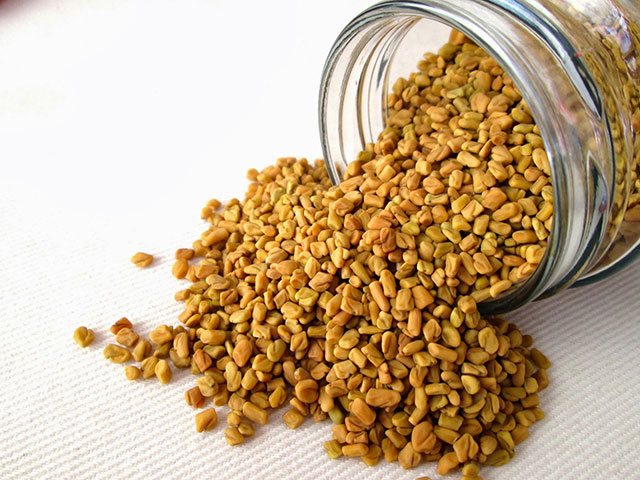
Mothers experience so-called “lactation crises” - temporary reductions in milk production by the mammary glands. The situation is this: breastfeeding is going like clockwork, the baby is full, the mother is happy - suddenly the amount of milk drops sharply. This usually occurs at 3–6 weeks of lactation, but may recur later - at 3, 4, 7 and 8 months. The main thing is that the mother does not become discouraged, but, knowing the reasons, calmly continues breastfeeding. Because the reasons are natural:
- The baby’s appetite increases, while the mammary glands do not have time to instantly adapt to greater product production.
- Changes in a woman’s hormonal levels that occur during these periods.
Baby starts crying when he doesn’t have enough breast milk: mom has a lactation crisis
Lactation crises last 3–4 days and are not dangerous to the baby’s health.
Nursing mothers who lack breast milk pay close attention to fenugreek. There are many reviews on the Internet from those who have taken the product and claim that milk flow increases the next day. And someone writes that the chest feels pleasantly heavier after the first mug of the healing decoction.
In fact, the positive and rapid effect on lactation from taking products with fenugreek has been proven. The mechanism of action is as follows: the plant activates the production of the hormone prolactin, which in a woman’s body is responsible for:
- formation of milk by the mammary glands during breastfeeding;
- stimulation of the growth of lobules of glandular tissue of the mammary glands.
However, scientists have not yet figured out exactly how the folk remedy fenugreek “pushes” prolactin to activity.
You will learn about other herbs for lactation in the article - Herbs to increase lactation: beneficial properties, methods of preparation, options for use.
Products with fenugreek help to establish lactation and provide the baby with a sufficient amount of breast milk
If breast milk production is reduced, a decoction of the plant's seeds will help improve lactation. This is a natural milk extractor. Easy to prepare:
- Soak the seeds for 2-3 hours (optional).
- 2 tsp. seeds (with top) pour a glass of water.
- Boil the resulting mixture for 7–8 minutes.
- Strain and drink.
To sweeten the bitter drink, honey is added to it. This must be done carefully: honey causes allergies.
Recipes for lactation: how to brew and take correctly?
Lactation consultants note the benefits of the plant for breastfeeding and recommend taking it in the form of capsules or warm tea (decoction).
Lactation tea with fenugreek
Compound:
- Hilba seeds - 2 tsp.
- Water - 200 ml.
Preparation:
- Rinse the seeds and cover with clean water.
- Let stand for 2 hours.
- Cook the mixture for 7 minutes.
Application: Drink 1 glass of decoction per day, dividing it into 2-3 doses. Remember to take breaks, as excessive consumption can harm you and your baby.
Ground fenugreek
If you purchased fenugreek in powder form, you can use the following recipe for a decoction of hilba powder.
Compound:
- fenugreek powder - 1 tsp;
- water - 1 glass.
Preparation:
- Pour the powder into a glass of water and boil for about 8 minutes.
- Let the broth stand for 10 minutes.
Application : Drink once a day.
Indications for use
Before using products based on the herb and seeds of Helba, it is recommended to consult with specialists (gastroenterologist, therapist, dermatologist) to clarify the course of use of decoctions and ointments.
Preparations from the plant help get rid of the following pathologies:
- disruption of the heart, accompanied by pressure surges and changes in the rhythm of contractions;
- fragility of blood vessels and impaired blood circulation;
- lack of iron and other beneficial substances in the blood and organ tissues;
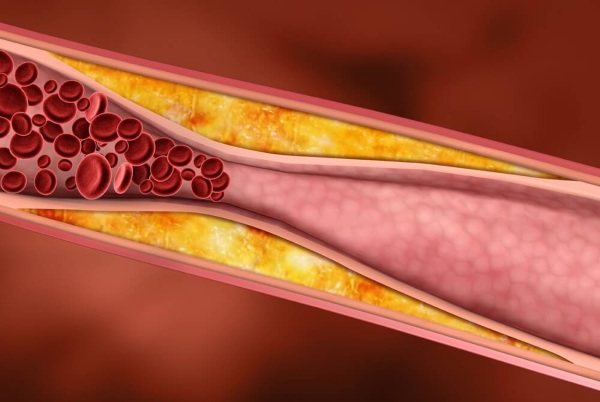
- impaired blood clotting, as well as increased levels of toxins and cholesterol;
- increased glucose levels in the body;
- malfunction of the pancreas;
- pathologies of the digestive tract (ulcers, gastritis, colic);
- bowel dysfunction (dysentery, constipation, excessive gas formation);
- swelling due to impaired renal function;
- diseases of the respiratory system (bronchitis, tuberculosis, tonsillitis);
- helps relieve fever in diseases;
- violation of the condition of cartilage, bone tissue and muscle atrophy;
- severe toothache, stomatitis, damage to the oral mucosa;
- decreased potency and problems with conception;
- inflammatory and infectious diseases;
- dermatological rashes accompanied by itching and inflammatory reaction;
- restores the production of breast milk during feeding and improves its composition;
- reduces pain during menstruation and normalizes the general condition during menopause;
- increased excitability, nervousness, poor sleep;
- impaired attention and memory loss;
- eye pathologies (decreased vision, conjunctivitis);
- helps reduce weight without additional stress, reduces appetite, accelerates food absorption;
- dryness and aging of the skin;
- hair loss, split ends, increased oiliness of the skin and hair;
- When the body is hypothermic, it helps to quickly warm up.
Herbal tea helps the body recover faster after alcohol abuse. Thanks to the removal of toxins and normalization of liver function, headaches and symptoms of intoxication disappear within 2-2.5 hours.
Medicines and cosmetics based on Helba can be used if there are no contraindications. If in doubt, it is recommended to consult a specialist.
Main contraindications:
- the first 12 weeks of pregnancy. Tea and decoctions can cause miscarriage. Ointments may cause an allergic reaction on the skin. After the 16th week, drinks from Helba are recommended;
- endometriosis and uterine fibroids, the plant can increase bleeding;
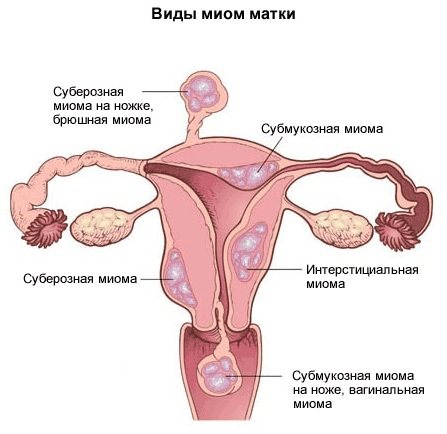
- increased estrogen content (the plant also causes an increase in the concentration of the hormone);
- benign or malignant formations in the mammary glands;
- gastric ulcer in an acute state;
- insulin-dependent diabetes;
- acute asthma;
- an allergic reaction of the body (can be expressed by vomiting, itchy skin rash, diarrhea).
Helba-based products are taken carefully together with medications; the side effects of the drugs may increase or the therapeutic effect may decrease. Incompatibility with cosmetics may also occur. It is not recommended to take Helba products before surgery.
Reviews
I want to share my discovery. Quite by accident, I read on the Internet about such a remedy for increasing lactation as fenugreek. These are the seeds sold in the spice aisle. They are usually included in curry and khmeli-suneli seasonings. Purely by chance, I went into the spice department at the supermarket to buy seasoning for chicken and saw fenugreek in a bag.
A friend brought fenugreek seeds and said, “Drink!” She had already told me about it more than once, but I was sure that it was just another herb that I take in the form of tea and they don’t give colossal results (well, again, I’m the smartest!) But I decided to drink... you never know. And then......it started pouring! For the first time, my child choked from the pressure and amount of milk. My daughter was completely full and refused the formula herself (which I had been pushing on her for another week out of fear that the child was starving).
It is important to remember that fenugreek, a representative of traditional medicine, is not a medicine, and therefore serves only as an auxiliary means of treating ailments. And although laudatory reviews from patients have not subsided for many centuries, the healing effect of the miracle herb has not been fully studied. Therefore, you need to carefully take precautions when using preparations with fenugreek, taking into account contraindications.
To improve lactation - Helba seeds or oil (fenugreek, shamballa)
pregnancy (can cause miscarriage, bleeding), high Pitta. Chemical composition Shambhala seeds contain a lot of nutritional components, the main ones being proteins, potassium, starch, sugar, essential oil, vitamins A, C and B and enzymes. Among other things, Shambhala seeds contain all the essential amino acids our body needs.
Energy value 1 tsp. Shambhala seeds - 12 kcal Nutrient content in 100 grams of Shambhala Fats (gr.) - 6.4; Proteins (gr.) - 23; Carbohydrates (g) - 58.4, fiber - 10; Minerals (mg): - potassium - 770, - calcium - 176, - magnesium - 191, - iron - 33.5, - phosphorus - 296, - sodium - 67, — zinc — 2.5;
1-2 teaspoons of shamballa (to taste) per glass of boiling water, but it is better to cook the “helba” (5-7 minutes). Then what you get is simply a “dream drink”, that same “fairy-tale Shambhala” that consoles, relaxes, heals, restores strength, and in general becomes a “mother”. Almost like L. Carol, remember: “... a mixture of cherry pie, omelette, pineapple, roast turkey, toffee and hot buttered toast, and soon she herself did not notice how the bottle was empty.”
You can add milk, lemon, ginger, natural bee honey, etc. to “yellow tea” (to taste). “Helba” is perfectly refreshing in hot weather. However, this is not the most important thing. The main thing is that this “tea” is indispensable for colds, bronchitis, asthma and pneumonia. The fact is that Helba has a very strong expectorant effect - much more pronounced than that of many modern medicines. In addition, “yellow tea” restores strength, calms the nervous system and improves mood.
How to brew Egyptian yellow tea?
Helba is a herb (the benefits of the plant are mostly concentrated in the beans), which in the preparation of Egyptian tea is used only for decoration and to enhance the aroma. The leaves of the plant are placed in the finished drink. The basis of the drink is fenugreek seeds.
The process of preparing a drink. Washed and dried Helba seeds must be fried until they acquire a red tint (if under-roasted or over-roasted), the tea will taste bitter. Next, the seeds need to be crushed. Boil the resulting powder (7-8 g) in 200 ml of water for 7 minutes and let it brew for the same amount of time.
To add greater benefits and taste, it is recommended to add honey, oregano or ginger according to taste preferences. The drink retains its taste and quality when cool. To avoid the development of side effects, it is recommended to consume 1 serving per day.
To cleanse the intestines if you have difficulty passing stool, you can steam 15-18 g of ground seeds in 200 ml of boiling water overnight. Drink in the morning, before breakfast. To enhance the effect, add honey or figs.
You can use Helba oil (50-70 ml) with honey (10-15 ml). The mixture is also taken in the morning. Multi-ingredient tea has become very popular.
You need to prepare the mixture:
- juniper and elderberry root - 3 parts each;
- dill seeds – 2 parts;
- Helba beans and aloe juice - 1 part each.
After thorough mixing, steam 10 g of the mixture in 180-200 ml of boiling water. It is advisable to infuse in a thermos or boil for 5 minutes over low heat.
When consuming the drink in the morning, bowel cleansing will occur in the evening hours. Additionally, during the day, excess fluid will be released from the body.
For the treatment of sore throat
A decoction of Helba helps relieve inflammation in the throat and eliminate infection. To do this, you need to boil 40-50 g of fenugreek beans in 0.5 liters of water. The cooking process lasts up to 30 minutes.
After cooling, you need to gargle with the decoction throughout the day. Significant improvements are noted by the evening. After recovery, for prevention, it is recommended to drink tea according to the classic recipe with the addition of lemon juice and honey.
For the kidneys
Helba, prepared together with dates, allows you to normalize the functioning of the kidneys and remove stones from them. The preparation uses the beneficial properties of beans; no grass is required.
To prepare tea, take 75-90 g of fenugreek beans and 3 dates per 180-220 ml of boiling water. Boil for no more than 6 minutes. You need to consume 300 ml per day. The daily dose is divided into 3-4 doses. Daily use allows you to crush large stones and remove them from the body with urine. The duration of use should be discussed with a nephrologist or therapist.
The classic recipe for Helba with honey also normalizes kidney function.
For bronchitis
To prepare a drink for bronchitis, you will need to prepare a mixture of fenugreek, fennel seeds or dill and elderberry (10 g each) and linden blossom and violet (20 g each). Take 50 g of the mixture per 200 ml of boiling water. It is necessary to leave for 120 minutes, then boil for 5 minutes. Drink the drink 12 hours before.
A decoction of 25 g of seeds in 200 ml of milk helps with dry cough. Boil for 1-2 minutes and leave. Use 2 times before meals. Check with your physician about the compatibility of the products with medications.
Fenugreek and lactation
Since ancient times, in Eastern countries, nursing women have taken fenugreek to increase breast milk production. Meanwhile, modern scientists have not figured out the specific mechanism of the plant’s influence on lactation. However, helba seeds have a general strengthening effect on the female body, weakened by recent childbirth. Mom regains strength faster, which certainly has a positive effect on lactation. In addition, diosgenin has a beneficial effect on the mammary glands, helps breasts remain firm, and the proteins, vitamins and minerals in fenugreek improve the quality of milk.

Fenugreek seeds have a powerful restorative effect on the body, which is very important for a nursing woman
Methods of use
The best option for a nursing mother is to use helba decoction. This method allows you to get the maximum beneficial substances from the plant:
- Two teaspoons of seeds are washed, poured with a glass of cold water and left for at least three hours.
- After this, the composition is boiled for about five minutes.
Drink the decoction throughout the day, dividing it into 3-4 doses.
It is not necessary to strain the decoction: a woman can eat the fruits to enhance the effect.
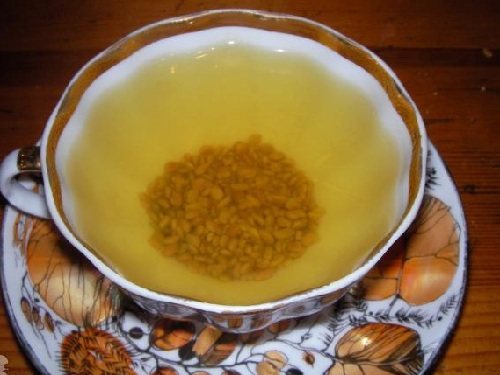
Helba decoction can be consumed together with seeds
An easier-to-use option is fenugreek infusion:
- One tablespoon of fruit is poured into a glass of boiling water.
- Infuses for about two hours.
The resulting drink is consumed before meals and is also divided into 3-4 doses.
You can make the herbal drink more tasty by adding a small amount of honey, milk or ginger.
In pharmacies, fenugreek seeds are also sold in capsule form. To stimulate lactation, it is recommended to take them three times a day, 2-3 pieces. This should be done immediately before eating. A teaspoon of jam will help soften the bitter taste (unless, of course, it causes allergies in the baby).
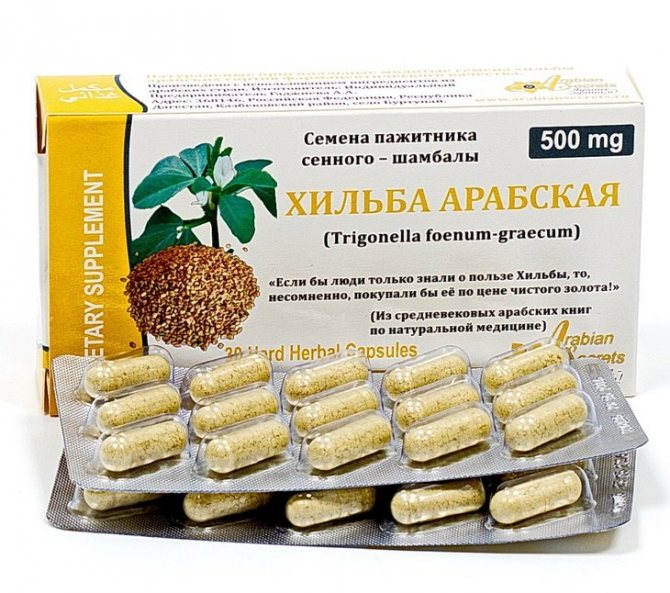
Fenugreek can also be taken in dry form to increase lactation.
As for the duration of taking fenugreek, a woman needs to carefully monitor her condition. After all, everyone’s body is different: for some, the use of grass will not affect lactation in any way, while others will be able to see a noticeable result in a short time. If after a week of taking there are no changes in lactation, then you should continue to drink Helba (as a drink or capsules) in the same volume (you cannot exceed the indicated doses): perhaps the body just needs more time. If lactation increases and the nursing mother considers that she has sufficiently increased milk production, then the dose can first be reduced and then completely stopped taking the drug.
